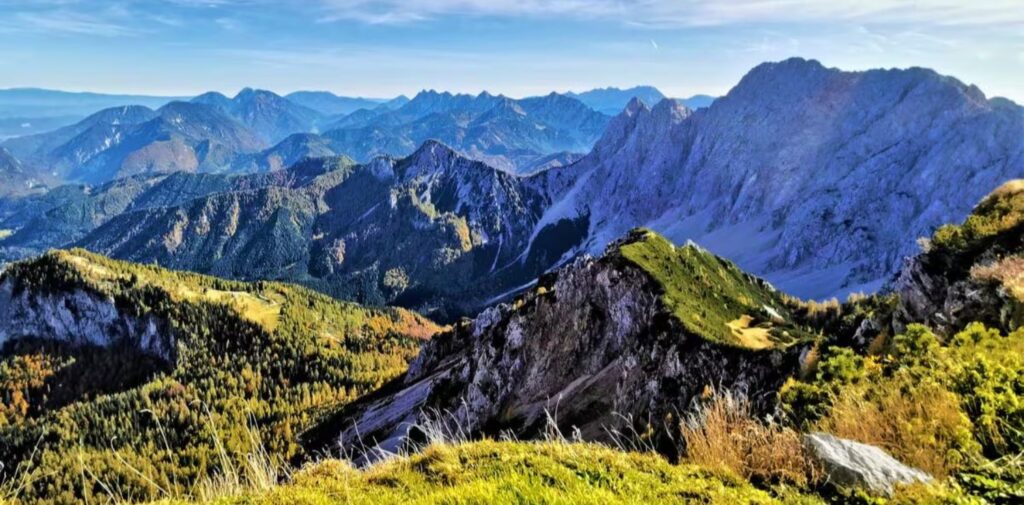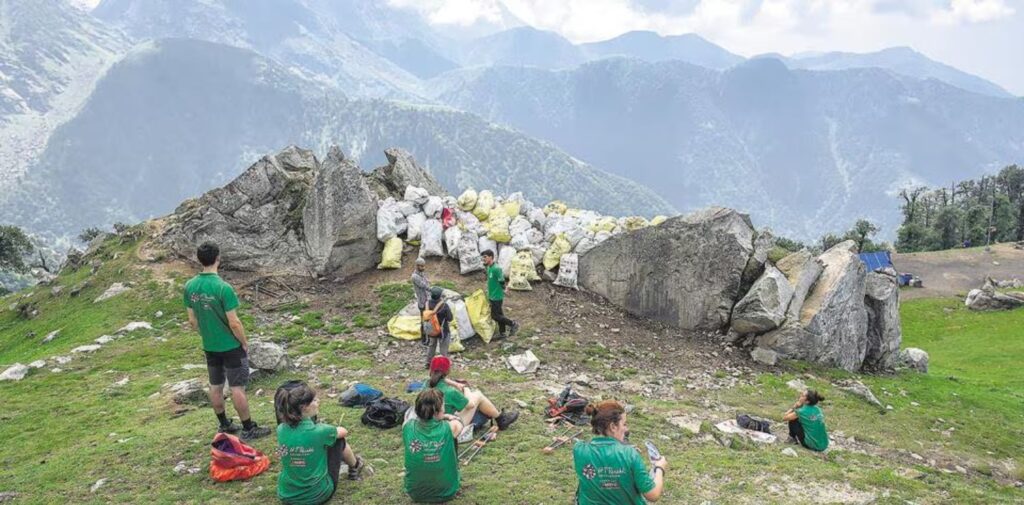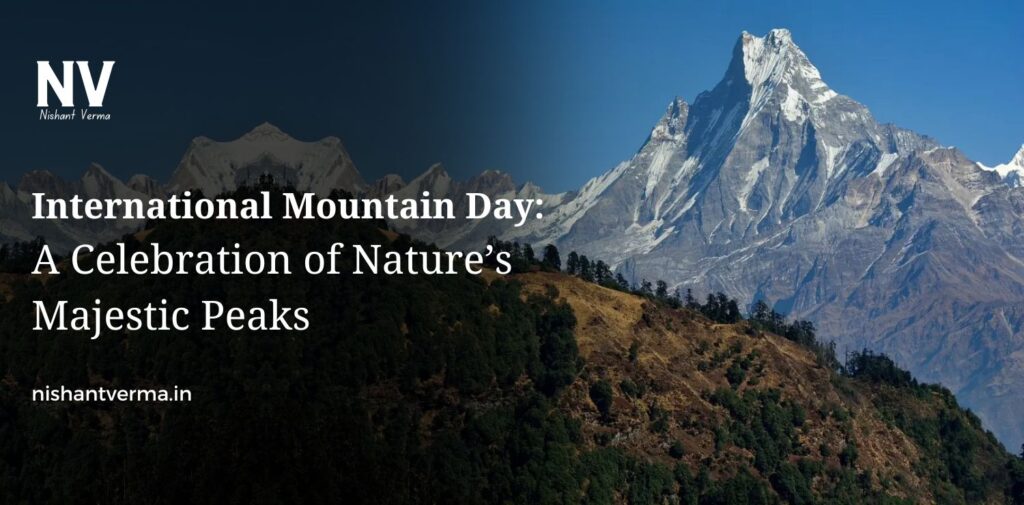International Mountain Day, celebrated on December 11th every year, is an occasion to recognize the importance of mountains to life on Earth. Mountains are not only stunning natural wonders but also play a crucial role in the environment, economy, culture, and the well-being of people. This day is an opportunity to raise awareness about the challenges faced by mountain ecosystems and the communities that rely on them. Let’s explore the significance of mountains, the importance of this day, and how we can all contribute to protecting these majestic landscapes.
The Significance of Mountains
Mountains cover about 27% of the Earth’s land area, providing vital resources such as water, food, and energy. They are often referred to as “the Earth’s water towers” because the glaciers and snow in mountains serve as a source of freshwater for billions of people. Mountain regions are also home to some of the world’s most diverse ecosystems, with unique plants, animals, and human cultures.
In addition to their environmental importance, mountains have a deep cultural and spiritual significance. Many indigenous communities in mountain regions have lived there for generations, developing rich traditions and lifestyles that are closely linked to the land. Mountains are often seen as sacred places in various cultures and religions, symbolizing strength, peace, and a connection to the divine.

The Importance of International Mountain Day
International Mountain Day was established by the United Nations General Assembly in 2003, recognizing the need to focus on sustainable mountain development and raise awareness about the challenges these areas face. Each year, the United Nations selects a theme for the day to highlight particular issues related to mountain regions. The day is not only about celebrating the beauty of mountains but also about addressing the environmental, social, and economic issues that affect mountain ecosystems.
Mountains are increasingly under threat due to climate change, deforestation, mining, overpopulation, and other human activities. Glaciers in many mountain ranges are melting at an alarming rate, leading to a shortage of water for communities downstream. Deforestation and habitat destruction threaten the unique flora and fauna that call the mountains home. Additionally, many mountain communities face poverty, lack of access to education, and health services, making it even harder to adapt to the challenges of climate change and environmental degradation.

The Challenges Facing Mountain Ecosystems
- Climate Change and Melting Glaciers:One of the biggest threats to mountains is climate change. As global temperatures rise, glaciers in mountain ranges are melting at an accelerated pace. This affects water supplies for millions of people who depend on glacier-fed rivers for drinking water, irrigation, and energy production. The loss of glaciers also leads to an increased risk of floods and landslides, which can cause widespread destruction and loss of life.
- Deforestation:Mountains are home to rich forests, but these are being cleared for agriculture, logging, and infrastructure development. Deforestation in mountain regions can lead to soil erosion, loss of biodiversity, and reduced water retention. This, in turn, makes mountains more vulnerable to natural disasters such as landslides and floods.
- Overexploitation of Resources:In many mountainous regions, people rely heavily on the natural resources around them, such as minerals, timber, and medicinal plants. While this can provide economic benefits, it can also lead to the overexploitation of these resources. Unsustainable mining practices and the destruction of forests are two major concerns that threaten the delicate balance of mountain ecosystems.
- Poverty and Lack of Access:Many mountain communities live in remote and difficult-to-reach areas, which makes it hard for them to access essential services such as education, healthcare, and infrastructure. This lack of access can contribute to poverty, limited economic opportunities, and poor health outcomes. Additionally, these communities are often highly vulnerable to the impacts of climate change, as their livelihoods are directly tied to the natural environment.

How We Can Protect Mountains
International Mountain Day is a call to action for governments, organizations, and individuals to take steps to protect mountain ecosystems and support the communities that live in them. Here are some ways we can contribute to the conservation of mountains:
- Support Sustainable Practices:It’s essential to encourage sustainable farming, forestry, and mining practices in mountain regions. Sustainable agriculture and responsible resource management can help protect the environment while supporting local economies. Additionally, reducing deforestation and promoting reforestation efforts can help prevent soil erosion and protect wildlife habitats.
- Raise Awareness:By learning about the issues facing mountains and sharing that knowledge with others, we can help raise awareness and inspire action. Social media, educational campaigns, and community events can play an important role in spreading the message about the importance of mountain ecosystems.
- Promote Sustainable Tourism:Mountain regions are often popular tourist destinations, but tourism can put a strain on the local environment and resources. Supporting responsible tourism that respects local cultures and the environment is essential. This includes staying in eco-friendly accommodations, minimizing waste, and respecting wildlife and natural landscapes.
- Invest in Mountain Communities:Governments and organizations should invest in improving the quality of life for people living in mountain regions. This includes providing better access to education, healthcare, and economic opportunities. By strengthening the resilience of mountain communities, they will be better equipped to face the challenges of climate change and environmental degradation.
- Support Research and Innovation:Scientific research and innovation are key to understanding the challenges faced by mountains and finding solutions. Supporting research on sustainable development, climate change, and environmental protection in mountain regions can help create more effective policies and strategies for conservation.
Conclusion
International Mountain Day is not just about admiring the beauty of mountains; it is a reminder that these incredible landscapes are vital to the survival and well-being of billions of people around the world. From providing freshwater and food to supporting unique ecosystems and cultures, mountains are indispensable to life on Earth. However, they are also facing increasing threats from climate change, deforestation, and overexploitation. By raising awareness and taking action, we can help protect these majestic landscapes for future generations. On December 11th, let’s come together to celebrate and safeguard the world’s mountains, ensuring that their beauty and benefits endure for years to come.




